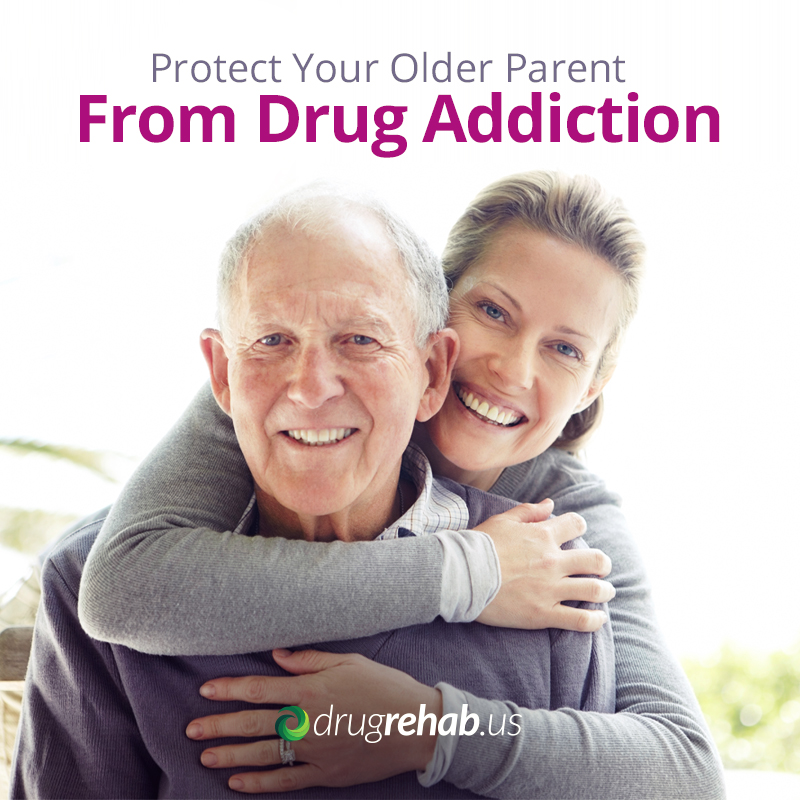How To Protect Your Older Parent From Drug Addiction
Now that you are an adult and your parents are older, it may become your responsibility to care of them. Even if they don’t need round-the-clock care, it is important that you make sure your parents are happy and healthy and living well.
Part of that means watching for signs of drug abuse and protecting them from the risk of getting hooked on drugs.
It may seem like a worry you should never have to consider, but the truth is that drug abuse among older Americans is on the rise. Here’s how you can protect your parents.
Protecting Your Parents From Addiction
Get Educated
 To protect parents from the dangers of substance abuse, it’s important that you understand the issue. Educate yourself about senior substance abuse and addiction so you are aware of the risks and the signs. Although it’s surprising, substance abuse among seniors is not that unusual. In fact, it is a growing phenomenon. Estimates show that by 2020, the number of older Americans needing treatment for a substance use disorder will have doubled. Just a few years ago, nearly five percent of adults over 50 were abusing drugs or alcohol.
To protect parents from the dangers of substance abuse, it’s important that you understand the issue. Educate yourself about senior substance abuse and addiction so you are aware of the risks and the signs. Although it’s surprising, substance abuse among seniors is not that unusual. In fact, it is a growing phenomenon. Estimates show that by 2020, the number of older Americans needing treatment for a substance use disorder will have doubled. Just a few years ago, nearly five percent of adults over 50 were abusing drugs or alcohol.
There are several reasons older Americans are susceptible to substance abuse. One is access to prescriptions. Nearly one-third of prescriptions in the U.S. are written to people over 50. Becoming dependent on habit-forming prescriptions is more likely the more they are prescribed. Seniors are also more likely than younger people to experience certain social factors that may contribute to substance abuse: social isolation, a feeling of uselessness after retirement, the loss of a spouse, and depression.
Talk About Drug Abuse
Armed with the facts, start a discussion with your parents. It may be awkward or uncomfortable at first, but knowledge is power. If you can make your parents understand how risky it can be to abuse their prescriptions or to drink too much, they will likely make better decisions. They may also be unaware just how their emotional health impacts the choices they make regarding substances. Encourage your parents to get involved in social activities and to talk to you if they are feeling lonely, depressed or sad.
Help Manage Prescriptions
Abuse of prescriptions by seniors is often unintentional. Many get hooked simply because they need a drug, like a painkiller, to feel better and then use of it spirals out of control. With many different prescriptions, which is common with seniors, it can get confusing. Your parents may end up making mistakes with doses and combinations. Go to appointments with your parents and take careful notes about medications, dosages and interactions. Help your parents organize medications and monitor their drugs to be sure they are taking them correctly.
Monitor Behaviors And Get Help
Drug abuse has telltale signs, no matter the age of the user. Spend time with your elderly parents and watch for changes in health or behaviors that trouble you. Drug or alcohol abuse can cause changes in sleeping habits or appetite, irritability or anxiousness, confusion, and an increased number of falls. You know your parents, and if anything changes that makes you uncomfortable, be suspicious.
If you do suspect substance abuse in a parent, don’t hesitate to get help. Treatment options are available and seniors are more open to them than you might think. The good news is that statistics show that patients over 50 are the most successful when it comes to getting addiction treatment. Be there for your parents, guide them, educate them and help them when they need it so that you will have many more years to enjoy spending time together.
Get The Know-How On Why Substance Abuse Is Rising Among Seniors



